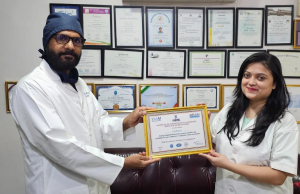
Introduction
Exams have long been the backbone of formal education systems, serving as benchmarks for student learning, teacher effectiveness, and institutional accountability. Standardized testing, in particular, has dominated global education landscapes for decades, promising objectivity and fairness. However, in the 21st century, educators, policymakers, parents, and students are increasingly questioning whether standardized testing truly reflects learning or prepares students for the complexities of real-world challenges.
Critics argue that standardized tests often measure memorization over creativity, penalize diverse learners, and put undue stress on students. In response, educators worldwide are exploring innovative alternatives that assess not just what students know, but how they think, apply knowledge, and grow over time.
This blog explores why standardized testing is under scrutiny, examines the consequences of over-reliance on it, and highlights promising alternatives that reimagine how we evaluate learning.
The Problem with Standardized Testing
- Narrow Definition of Learning
Standardized tests often focus heavily on rote memorization and specific academic skills, neglecting critical thinking, creativity, collaboration, and emotional intelligence—skills increasingly valued in the modern workforce.
- Test Anxiety and Mental Health
High-stakes exams place enormous pressure on students, contributing to anxiety, stress, and burnout. For some, test performance reflects test-taking ability more than actual learning.
- Inequity and Bias
Standardized tests can reinforce social and economic disparities. Students from wealthier backgrounds often have access to test-preparation resources, tutoring, and supportive environments, while disadvantaged students are left behind. Cultural and linguistic biases also disadvantage non-native speakers and marginalized groups.
- Teaching to the Test
When schools are judged by test scores, teachers may feel compelled to focus on test preparation at the expense of deeper, more holistic learning. This narrows curricula and sidelines subjects such as the arts, physical education, and civic studies.
- Limited Feedback
Standardized tests provide snapshots of student performance at a single moment in time, offering little insight into long-term learning progress or areas for growth.
Why We Need Alternatives
The 21st century demands an education system that prepares students for dynamic, unpredictable futures. Rigid testing methods cannot fully capture skills such as problem-solving, adaptability, and collaboration. By adopting alternative assessments, schools can:
- Encourage creativity and innovation.
- Provide a more holistic view of student abilities.
- Reduce inequities linked to socioeconomic status.
- Align learning with real-world applications.
- Foster intrinsic motivation instead of performance-based stress.
Alternatives to Standardized Testing
- Portfolio Assessments
Portfolios allow students to compile a body of work over time, including essays, projects, artwork, experiments, and reflections. They highlight growth and provide a nuanced understanding of a student’s learning journey.
Benefits:
- Encourages creativity and ownership of learning.
- Tracks progress over time, not just at a single point.
- Provides a more authentic demonstration of skills.
Case Example: In Finland, student portfolios are a common assessment tool, emphasizing learning as a continuous process rather than a one-time evaluation.
- Project-Based Learning (PBL)
Instead of preparing for a test, students work on extended projects that require research, collaboration, and problem-solving. These projects often address real-world issues, making learning relevant and engaging.
Benefits:
- Develops critical thinking and teamwork skills.
- Encourages interdisciplinary learning.
- Produces tangible outcomes (presentations, reports, prototypes).
Case Example: High Tech High in California uses PBL as a core method of assessment, where students present projects publicly to peers and community members.
- Performance-Based Assessments
Students demonstrate their knowledge by performing tasks—such as conducting experiments, staging debates, writing and presenting speeches, or solving case studies.
Benefits:
- Emphasizes application of knowledge.
- Builds communication and practical skills.
- Allows teachers to evaluate creativity and problem-solving.
Case Example: The New York Performance Standards Consortium uses performance-based assessments (essays, oral defenses, experiments) instead of standardized state tests, showing strong college-readiness outcomes.
- Formative Assessments
Formative assessments are low-stakes, ongoing evaluations embedded in daily instruction. They include quizzes, peer reviews, reflective journals, and classroom discussions.
Benefits:
- Provides immediate feedback to students.
- Helps teachers adjust instruction in real time.
- Reduces stress compared to high-stakes tests.
Case Example: In Singapore, continuous assessments form a significant portion of student evaluation, balancing exams with frequent teacher feedback.
- Capstone Projects and Senior Theses
Students engage in a culminating project, often in their final year, that synthesizes learning from multiple subjects. Capstone projects may include research papers, presentations, or practical implementations.
Benefits:
- Encourages depth over breadth of knowledge.
- Prepares students for higher education and careers.
- Builds independent learning and time management skills.
Case Example: Many international schools offering the International Baccalaureate (IB) program include the Extended Essay as a core component, requiring independent research and critical analysis.
- Peer and Self-Assessment
Students evaluate their own work and that of their peers using structured rubrics. This builds reflection, accountability, and collaborative learning.
Benefits:
- Develops metacognitive skills.
- Encourages students to take ownership of learning.
- Promotes fairness and empathy in group work.
Case Example: In Denmark, self- and peer-assessment is incorporated into national curricula, fostering student independence and critical self-reflection.
- Adaptive Digital Assessments
Technology now allows for adaptive testing platforms that adjust difficulty based on student responses. While still structured, these assessments provide more personalized insights than traditional standardized tests.
Benefits:
- Tailors questions to student ability.
- Provides real-time analytics for teachers.
- Reduces frustration and disengagement.
Case Example: The MAP (Measures of Academic Progress) assessment, used in U.S. schools, adapts to each student’s level, offering individualized growth data.
Challenges in Moving Beyond Standardized Testing
While alternatives are promising, they also present practical challenges.
- Scalability: Portfolio or project-based assessments can be time-intensive for teachers to evaluate.
- Consistency: Standardized tests provide uniform metrics; alternatives may vary across schools.
- Training Needs: Teachers need support to design and implement new assessment methods.
- Policy Resistance: Governments often rely on standardized tests for accountability, making large-scale reform difficult.
These challenges highlight the need for systemic change, teacher training, and a cultural shift in how society defines “success” in education.
Blended Approaches: A Middle Ground
Rather than eliminating standardized tests altogether, some systems are combining them with alternative methods. A balanced assessment framework might include:
- Standardized tests for benchmarking basic competencies.
- Portfolios and projects for deeper demonstrations of knowledge.
- Formative assessments for continuous feedback.
- Capstone experiences for culminating achievements.
This hybrid model respects the need for accountability while also promoting richer, more holistic learning.
The Future of Assessment
As education evolves to meet the demands of the 21st century, assessments must evolve as well. Future trends may include:
- AI-driven personalized assessments that adapt in real time.
- Global competency frameworks measuring collaboration, empathy, and intercultural skills.
- Gamified assessments making evaluation more engaging and less stressful.
- Integration of workplace experiences into academic assessments, linking education with career readiness.
Conclusion
Standardized testing has long been seen as the gold standard of educational evaluation. However, its limitations in measuring the full spectrum of student abilities, its reinforcement of inequality, and its contribution to student stress have sparked a global movement to reimagine assessment.
Alternatives such as portfolios, project-based learning, performance assessments, and adaptive digital tools offer more authentic and inclusive ways of understanding what students know and can do. Though challenges remain, blended and innovative approaches can shift education toward a system that values creativity, critical thinking, and lifelong learning.
Reimagining exams is not about abandoning accountability—it is about broadening our understanding of learning. In a world where adaptability, collaboration, and innovation matter as much as memorization, assessment systems must evolve to reflect what truly counts.



